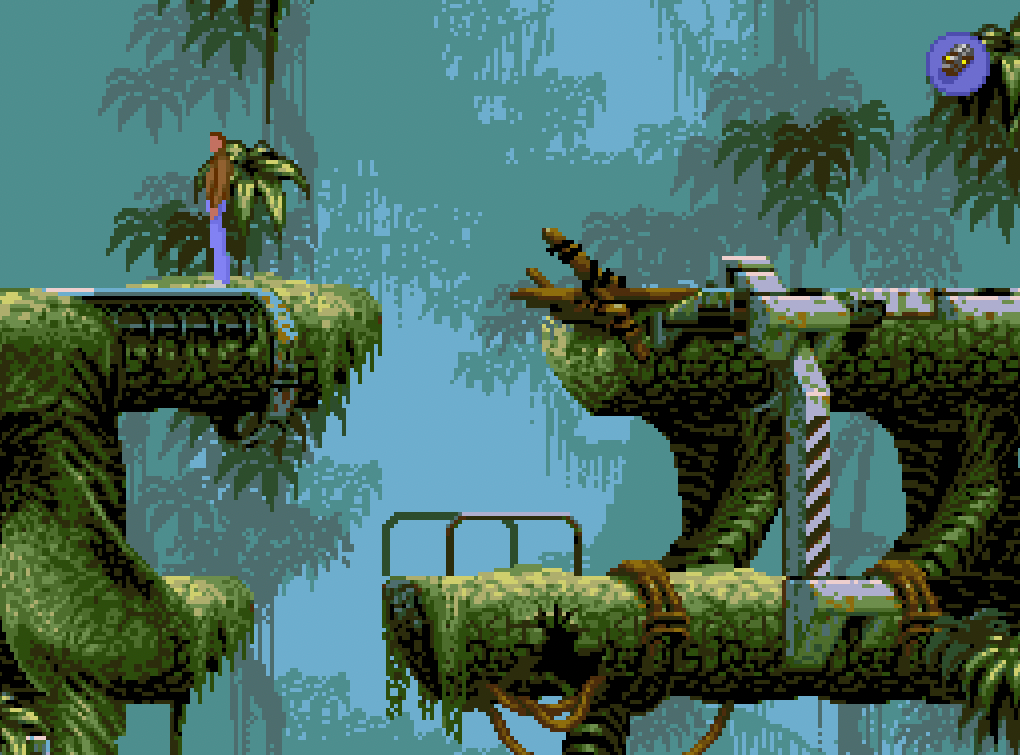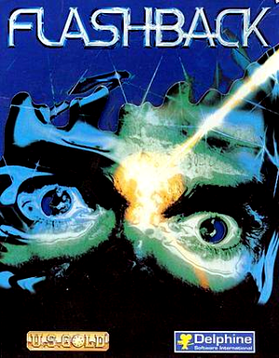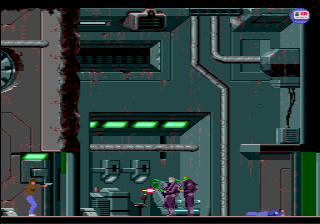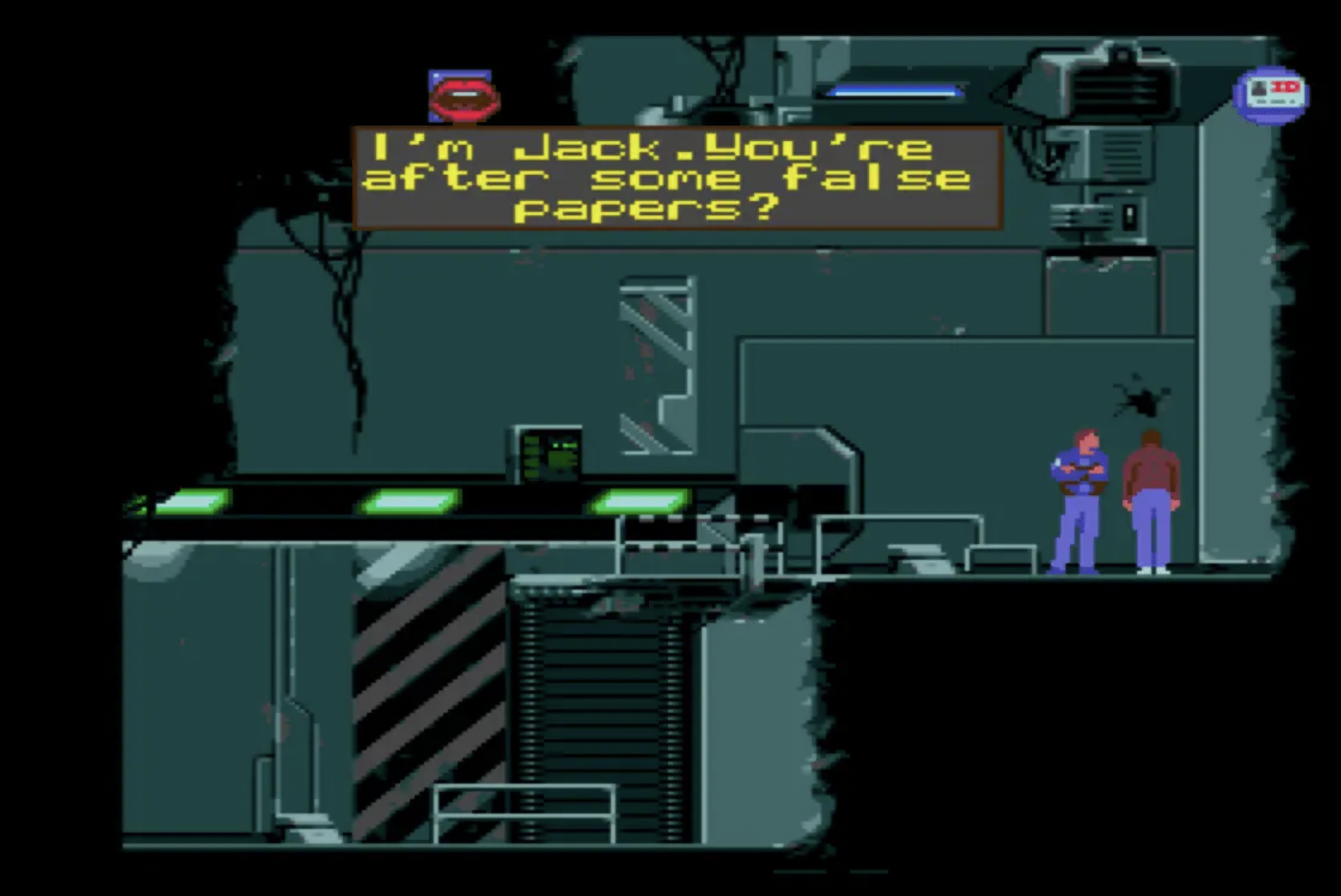Flashback (1992)
It's 1992, and while most platformers have you collecting coins, Flashback asks you to question reality itself. Conrad awakens in a jungle with gaps in his memory, clutching a holographic message from his past self. What follows is an interactive sci-fi thriller that predicted gaming's future.

Welcome to the inaugural edition of Retro Gem Spotlight, where we dust off those forgotten treasures that deserve another moment in the limelight. For our first adventure into gaming's golden past, we're diving into 1992's Flashback, a title that somehow managed to squeeze Hollywood-level production values into your humble home computer.
Developed by a scrappy ten-person team at Delphine Software in Paris, this French masterpiece arrived at a time when most platformers were still content with plumbers stomping on mushrooms. Flashback had grander ambitions – it wanted to be a playable sci-fi blockbuster, and against all odds, it actually succeeded. With over 750,000 copies sold in France alone, it earned a spot in the Guinness World Records as the country's best-selling homegrown game. Not too shabby for a project that started life as a rejected Godfather adaptation!

A Tale of Memory Loss and Alien Conspiracies
Our protagonist, Conrad B. Hart, begins his journey in the most relatable way possible: waking up in a jungle with no memory of how he got there and a serious case of "why are cyborgs trying to kill me?" It's the kind of Monday morning we've all experienced, really.
Conrad's predicament unfolds through a series of revelations that feel like they were ripped straight from the script of every great 80s sci-fi thriller. A mysterious holocube serves as his digital breadcrumb trail, leading him to discover he's actually a brilliant scientist who invented special glasses capable of detecting shape-shifting aliens living among humans. Think They Live meets Total Recall, with a dash of Blade Runner for good measure.
The narrative takes Conrad from hostile alien jungles to the underground metropolis of New Washington, where corruption runs as deep as the city's foundations. Eventually, he'll face off in a deadly game show (hello, Running Man), before making the ultimate trip to the aliens' home planet for some good old-fashioned world-saving heroics. It's gloriously derivative in the best possible way – a greatest hits compilation of sci-fi cinema tropes that somehow feels fresh rather than stale.

Technical Wizardry That Still Impresses
What truly set Flashback apart from its contemporaries wasn't just its cinematic ambitions, but how brilliantly it executed them with the very limited technology of the early 90s. The team employed rotoscoping techniques to create Conrad's incredibly lifelike movements – every jump, roll, and stumble looked like it belonged in a live-action film rather than a pixelated world.
The animation runs at a buttery-smooth 24 frames per second, matching cinema standards and creating an illusion of reality that was genuinely groundbreaking for its time. The backgrounds, painstakingly hand-drawn, created rich environments that felt alive and authentic. Each of the seven levels tells its own visual story - From the organic dangers of alien jungles to the neon-soaked streets of New Washington.
Jean Baudlot's synthesizer soundtrack deserves special mention, channeling the electronic atmospheres of films like Terminator and Beverly Hills Cop. As someone who originally worked in commercial jingles before co-founding Delphine Software, Baudlot understood exactly how to craft memorable musical hooks – many players still find themselves humming these tunes decades later.
The control scheme, often the Achilles heel of ambitious platformers, remains remarkably precise and responsive, even to this day. Whether you're threading Conrad through narrow passages or timing crucial jumps, the game responds exactly as you'd expect – a minor miracle considering the era's tendency toward sluggish character movement.

Where to Experience This Classic Today
For modern players eager to experience Flashback, you have several excellent options. The Flashback Remaster, available on Steam and GOG, remains the definitive way to play. This version addresses most of the original's minor frustrations (looking at you, mid-level save system) while preserving everything that made the game special. It runs beautifully on modern systems, including the Steam Deck for portable alien-hunting adventures.
The original versions can be found through various retro gaming channels, with the PC CD-ROM edition being particularly noteworthy for its enhanced cutscenes and improved audio. Retro Console enthusiasts might seek out the Mega CD version, which introduced voice acting and a more comprehensive musical score.
For the technically inclined, the REminiscence source port offers enhanced compatibility with modern systems, though you'll need original game files to make it work.
Next month in Retro Gem Spotlight: We'll be exploring another forgotten classic that pushed boundaries and challenged expectations. Got a suggestion for a game that deserves the spotlight treatment? Drop us a line – we're always hunting for our next digital archaeological dig.

